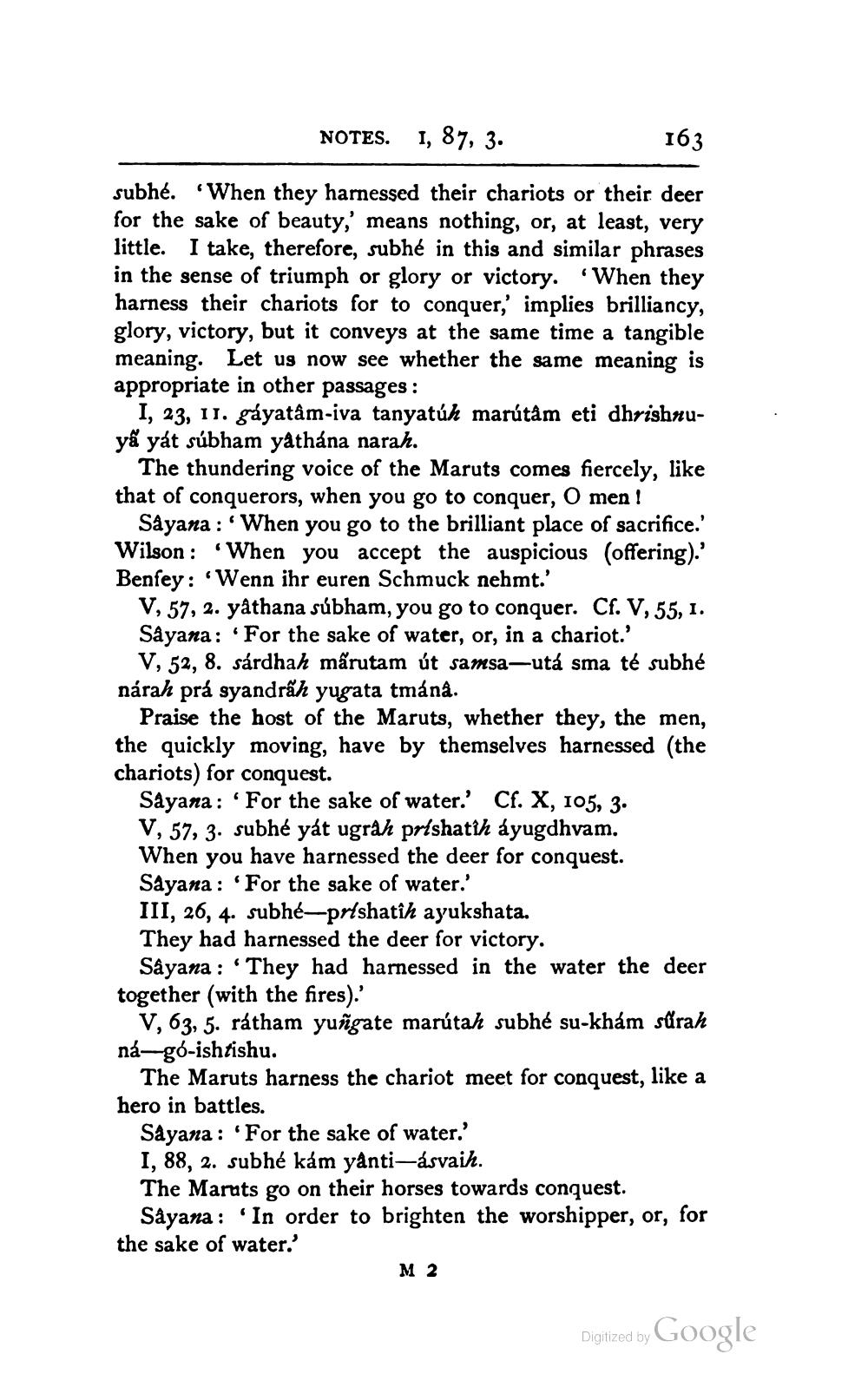________________
NOTES. 1, 87, 3.
163
subhé. When they harnessed their chariots or their deer for the sake of beauty,' means nothing, or, at least, very little. I take, therefore, subhé in this and similar phrases in the sense of triumph or glory or victory. When they harness their chariots for to conquer,' implies brilliancy, glory, victory, but it conveys at the same time a tangible meaning. Let us now see whether the same meaning is appropriate in other passages :
I, 23, 11. gáyatâm-iva tanyatúh marútâm eti dhrishnuya yát súbham yathána narah.
The thundering voice of the Maruts comes fiercely, like that of conquerors, when you go to conquer, O men!
Sayana :'When you go to the brilliant place of sacrifice.' Wilson : When you accept the auspicious (offering).' Benfey: 'Wenn ihr euren Schmuck nehmt.
V, 57, 2. yathana súbham, you go to conquer. Cf. V, 55, 1. Sayana: 'For the sake of water, or, in a chariot.'
V, 52, 8. sárdhah mãrutam út samsa—utá sma té subhé nárah prá syandráh yugata tmána.
Praise the host of the Maruts, whether they, the men, the quickly moving, have by themselves harnessed (the chariots) for conquest.
Sayana: 'For the sake of water.' Cf. X, 105, 3. V, 57, 3. subhé yát ugrah prishatih áyugdhvam. When you have harnessed the deer for conquest. Sayana : 'For the sake of water.' III, 26, 4. subhé-préshatîh ayukshata. They had harnessed the deer for victory.
Sayana : 'They had harnessed in the water the deer together (with the fires).'
V, 63, 5. rátham yuñgate marútah subhé su-khám strah ná-go-ishtishu.
The Maruts harness the chariot meet for conquest, like a hero in battles.
Sayana : 'For the sake of water.' I, 88, 2. subhé kám yanti-ásvaih. The Maruts go on their horses towards conquest.
Sayana : 'In order to brighten the worshipper, or, for the sake of water.'
M2
Digitized by
Digitized by Google




